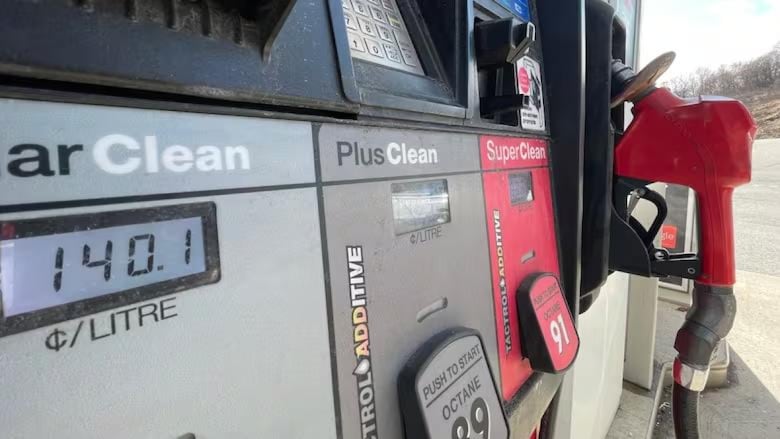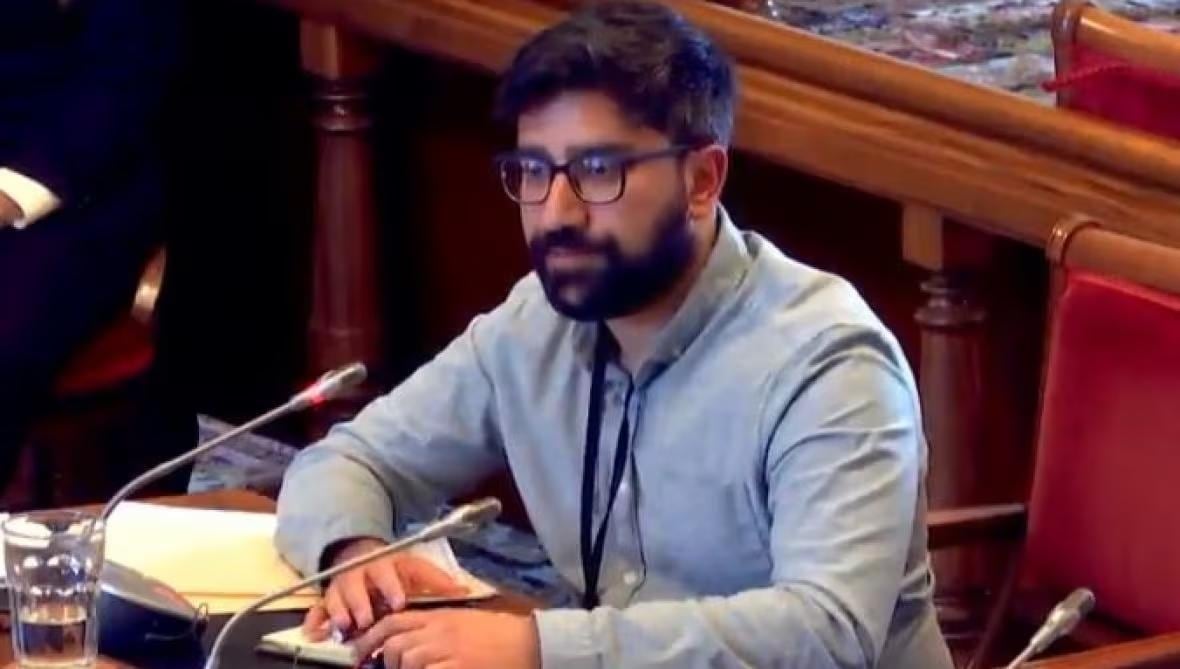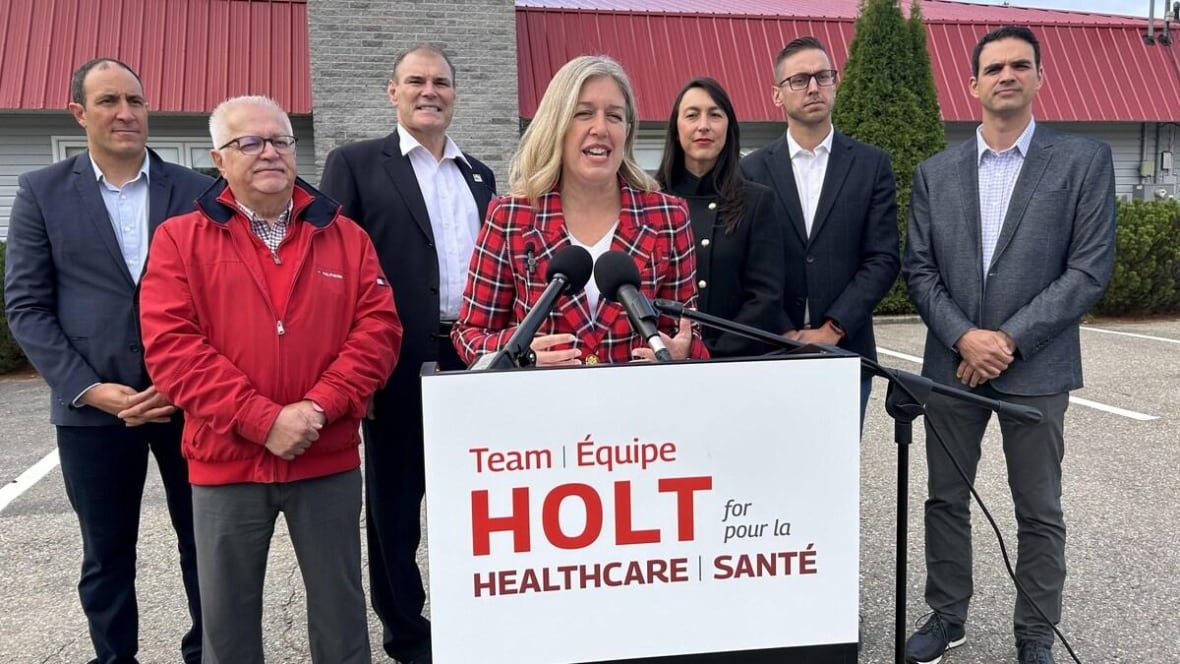Consumer gasoline charges that N.B. Liberals promised to eliminate climb to new highs
Election pledge to end 'cost of carbon adjuster' will be kept eventually, minister says

A charge on gasoline that New Brunswick Liberals promised to eliminate last fall if elected — but then didn't — has ballooned to more than double the size Premier Susan Holt once claimed was too much for consumers to bear.
In its most recent weekly setting of maximum prices for petroleum products last Friday, New Brunswick's Energy and Utilities Board allowed for a charge of 9.19 cents per litre on regular gas for what is called the "cost of carbon adjuster."
The amount is more than double the 3.98 cents the adjuster was set at this time last year.
Moe Qureshi, with the Conservation Council of New Brunswick, argued for the elimination of the adjuster charge at government hearings earlier this year. He said recent escalations in the charge require a response from the province.

"Doubling the carbon adjuster — it's quite absurd," Qureshi said.
The adjuster was created by the former Progressive Conservative government of Blaine Higgs in 2023 to allow oil companies to pass the cost of new federal environmental standards for refineries through to consumers.
The amount charged changes weekly based on a formula adopted by the New Brunswick Energy and Utilities Board.
Last year, Susan Holt, when she was leader of the Official Opposition, denounced the adjuster as unfair to consumers and in at least seven separate question period skirmishes with Higgs in the legislature, demanded he retract the policy.
She said the policy undermined any claim Higgs made about his concern for high prices. She called Higgs a "hypocrite" for not eliminating the charge immediately, when it was 3.9 cents per litre.
"If you really cared about the price of gas in New Brunswick, you would cut the cost by four cents or five cents today," Holt said in the particularly heated exchange in March 2024. "So, will the premier stop being a hypocrite and take the fuel adjuster off gas now."
Holt promised in last October's election to eliminate the adjuster charge quickly from gas prices if elected, but her government balked and has so far retained the charge even as it soared to record levels.

At hearings earlier this year independent retailers argued the adjuster charges were a needed protection from oil companies downloading the new environmental costs on them.
Nova Scotia and Newfoundland and Labrador have similar charges as part of their regulated gas prices, but those provinces cap what consumers can be charged at 5.46 and 5.4 cents respectively.
Qureshi said no one other than oil companies knows exactly what new expenses they have encountered to meet the federal government's higher environmental standards. He believes it is unfair to charge consumers a surcharge of more than nine cents without better information.
He said a cap on what consumers pay, like those in neighbouring provinces, would be a reasonable interim measure.
"Premier Holt did promise to eliminate this, but instead it's being doubled. So that I think pausing it or at least capping it is the bare minimum," he said.
In an emailed statement, René Legacy, the New Brunswick minister of finance and energy, said the province does still intend to eliminate the adjuster charge but only after the Energy and Utilities Board approves new, larger wholesale and retail margins and delivery charges for the oil industry first.
The EUB has been conducting hearings this summer into recommendations that, if implemented, would raise maximum amounts consumers can be charged by a combined 6.24 cents per litre for gasoline and 8.24 cents for diesel. The amounts are a mixture of higher wholesale and retail margins and delivery costs.
Legacy said once the EUB makes a final decision on those recommendations, the cost of the carbon adjuster will be dropped as promised.
"Once those reviews are completed and margins adjusted accordingly to ensure small & medium retails are not being squeezed and relying on revenue from the cost of carbon adjuster to fund their operations, we will proclaim the legislation," Legacy's statement said.


